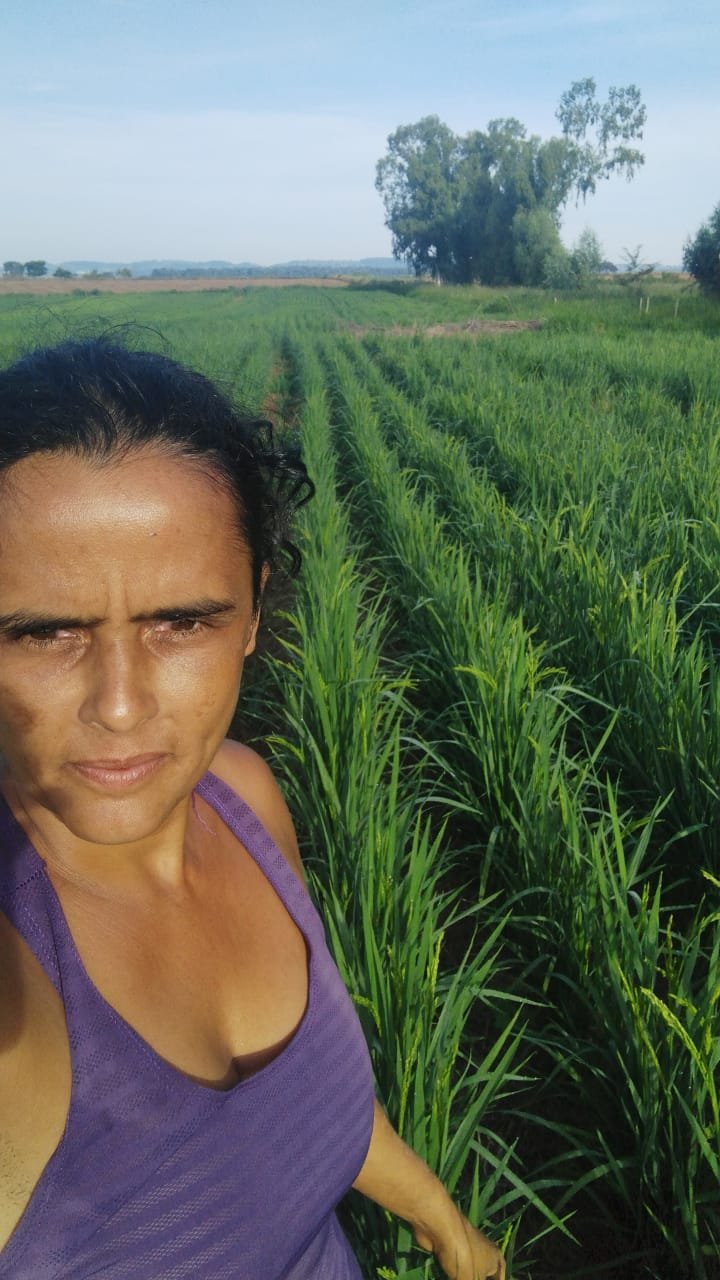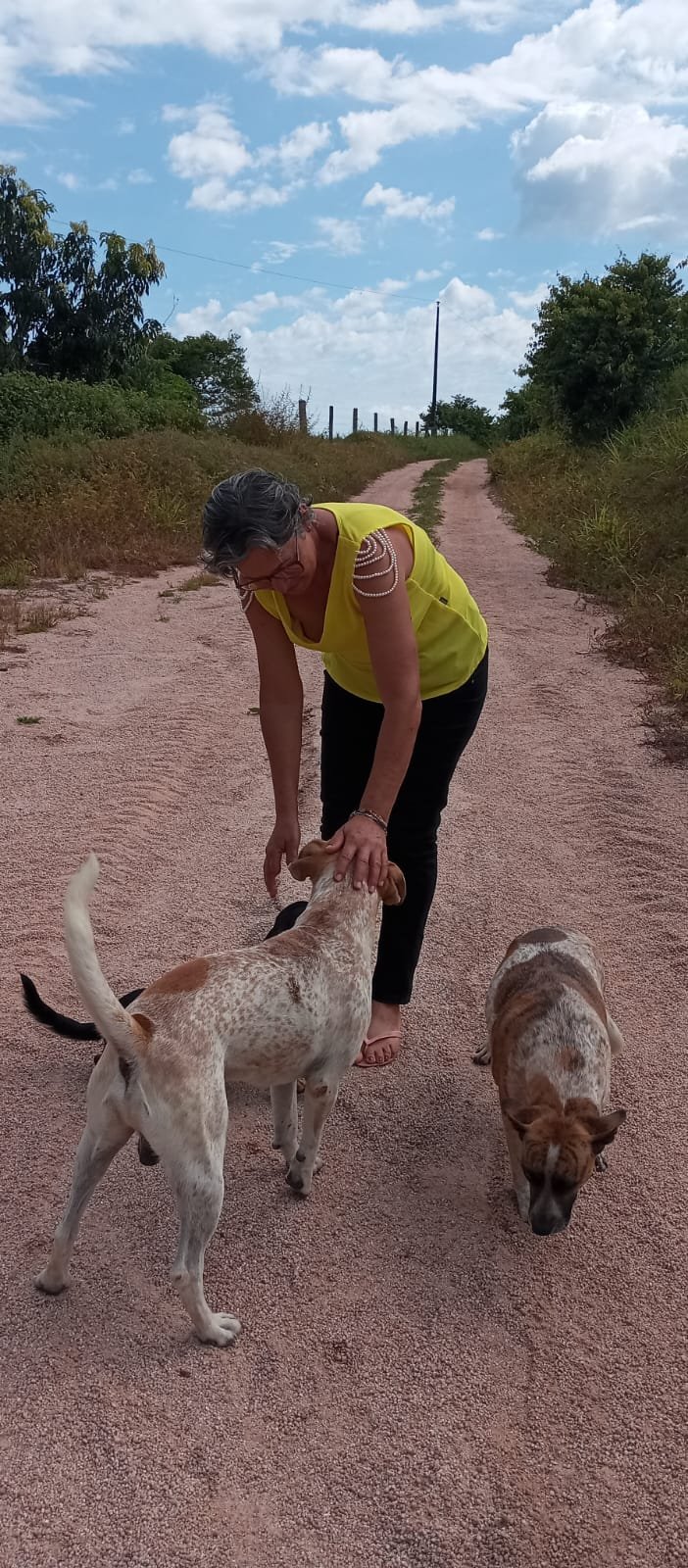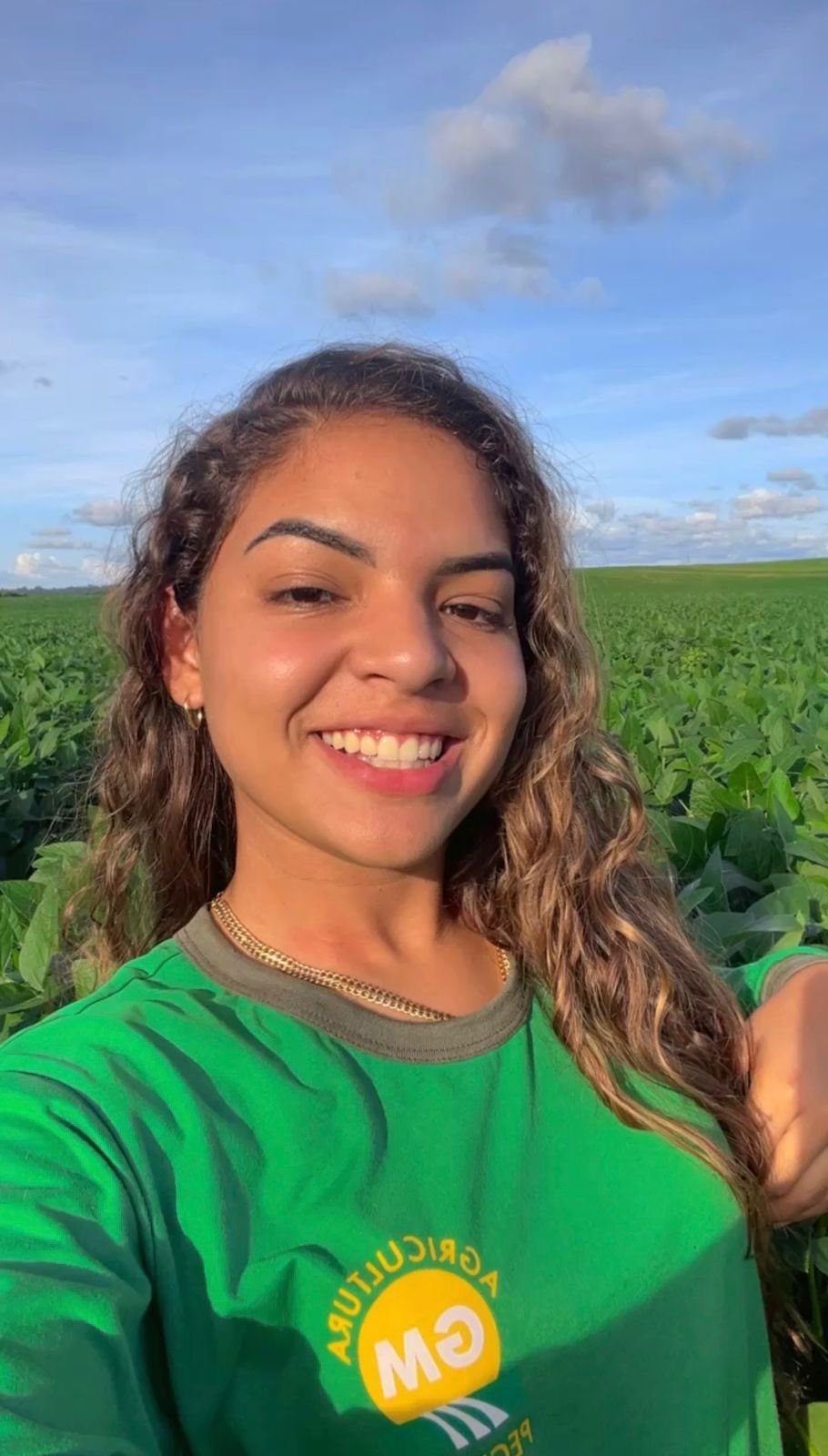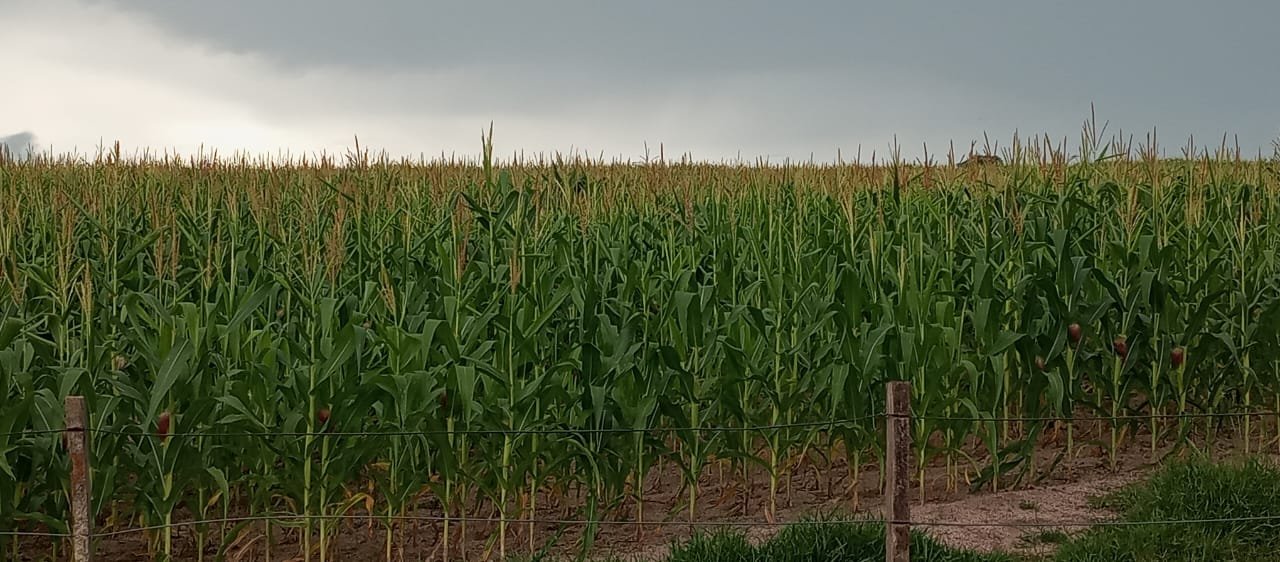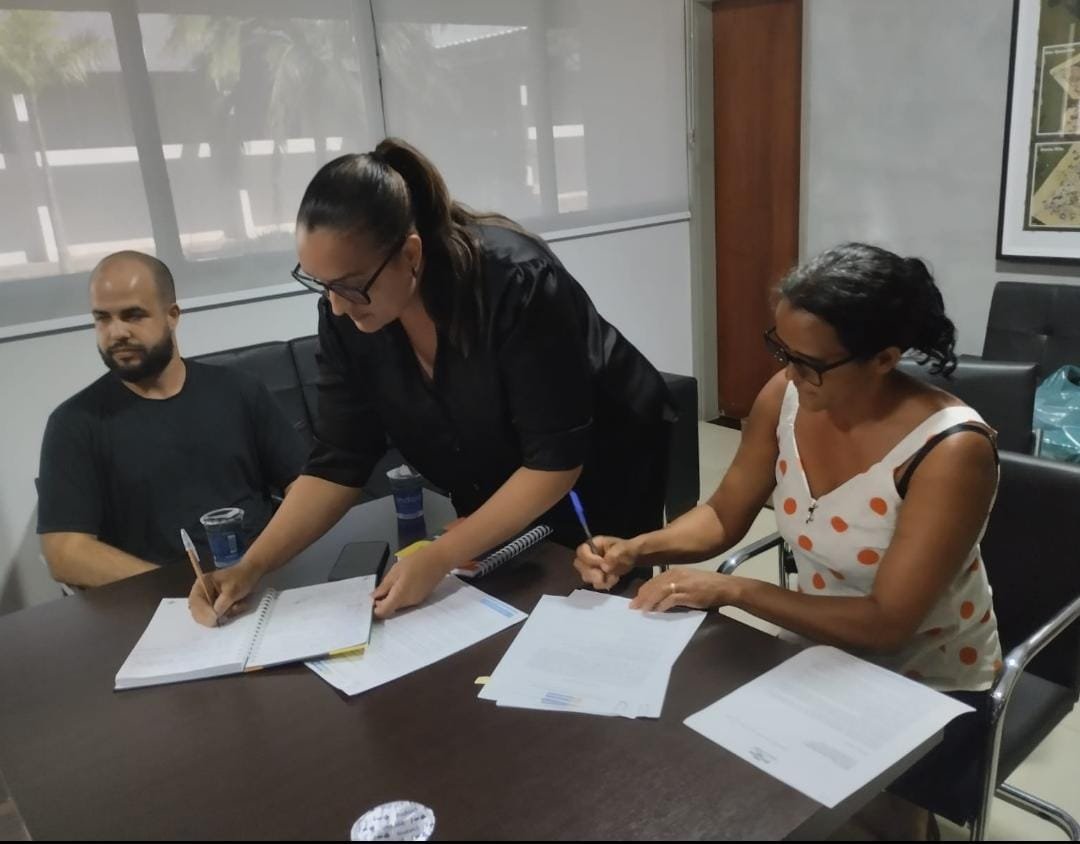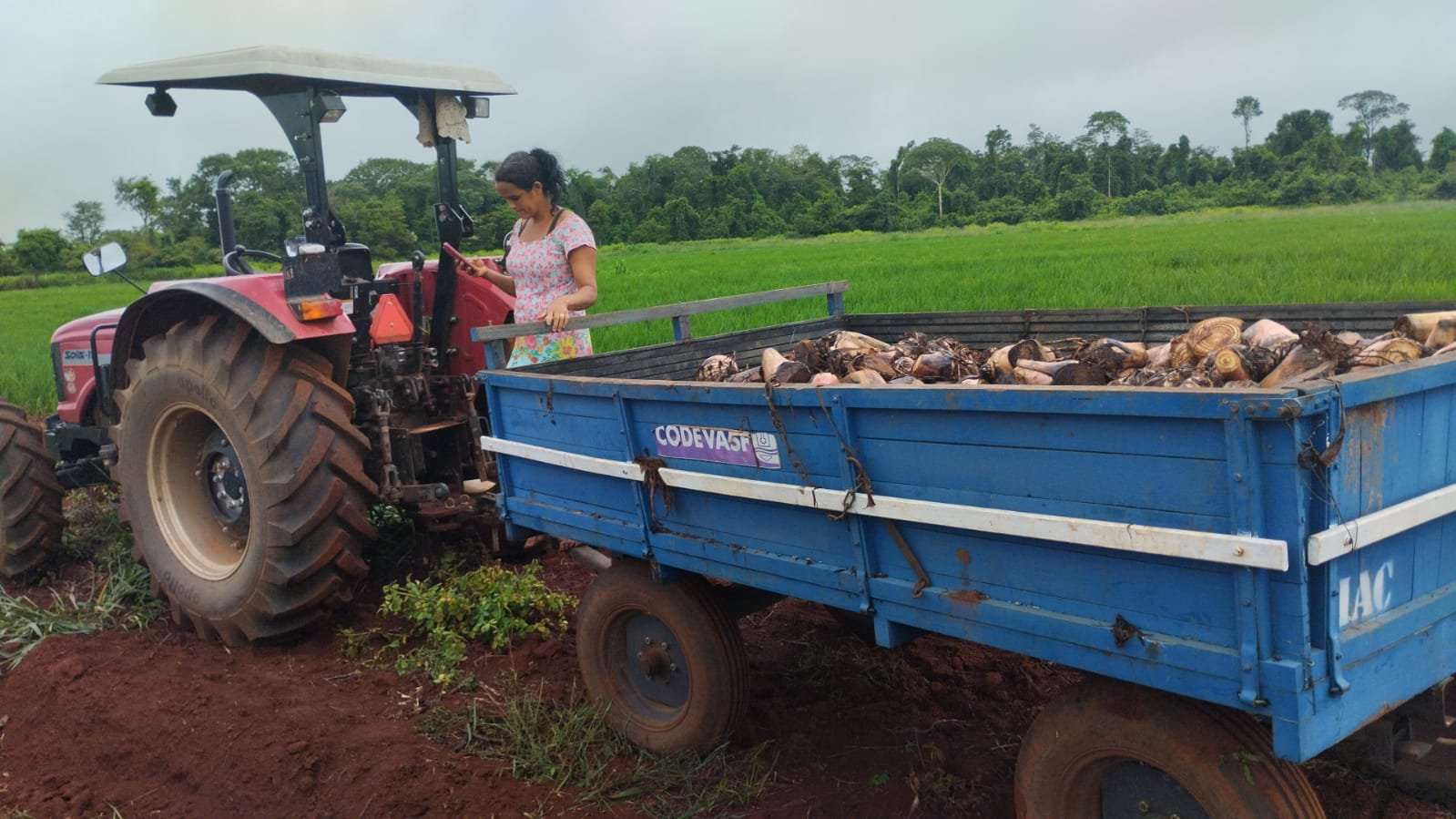Commited, corageous farmers
On this International Women's Day, we present brief profiles of three women leaders who manage their own farms in the SustentAgro program.
Lucimar Militão, Edna Alves and Ana Giulia de Oliveira: women leaders in agriculture
Edna Alves had lived in the city for 25 years when she returned to the countryside five years ago to look after a plot she inherited from her father on the Três Irmãos farm in Terra Nova do Norte (MT). Lucimar Militão has been working with family farming in the Carlos Mariguella settlement, in Itaberaí (GO), since 2000, when she got married, and now combines working on the land with leading the local association. At just 21 years old, Ana Giulia de Oliveira both studies agronomy and runs the family farm at Fazenda Santa Rosa, in Campo Grande (MS), leased by her father. Three different stories, brought together by their courage and dedication to heavy daily routines of learning, caring for the land and managing farms in one of the country's most well-established agricultural production areas. Edna, Lucia, and Ana Giulia are taking part in the SustentAgro project, an initiative of the ILPF Network Association in partnership with the Land Innovation Fund, which provides training and transfers technology to expand the use of integrated crop-livestock-forestry systems in Brazil’s central-western states.
The three leaders chosen to represent their gender on International Women's Day are from the 78% of farms involved in the SustentAgro portfolio with women as main managers or co-managers. "The women who take part in our initiative are strong, warriors, fighters and leaders. They represent much more than their own farms: they work as leaders of associations and cooperatives, in projects, in succession processes, alongside other issues equally relevant to rural administration," says Nilo L. Sander, coordinator of the SustentAgro project at the ILPF Network Association. "We have the utmost respect and affection for these and other rural women dedicated not only to protecting their families, but also to producing and promoting food security for thousands of people," he adds.
Lucimar Militão divides her time between her crops and the association in the Carlos Mariguella settlement in Itaberaí, Goiás. Tireless, she alternates her routine in the countryside with trips to the city to attend meetings of the city council, town hall and INCRA. "I like being president of the association, being a woman, looking after the house, working in the fields. I do what I like. I like cleaning, weeding, and working together with others," she says. The settlement grows cassava, vegetables, fruit, and rice, which they provide to the Food Acquisition Program (PAA) and the National School Feeding Program (PNAE). Through SustentAgro, they are starting to practice crop-livestock integration, and plant seedlings of native Cerrado trees on their farms. "With SustentAgro, we hope to deliver clean rice to increase our daily income," explains Lucimar.
Edna Alves swapped 25 years of city life for the countryside and is not thinking of going back. "Coming here was good, no complaints. My whole family lives here, including my brothers. Things are hard in the country and in the city. Here we have crops and livestock we can eat, so we don't have to buy everything," she explains. Edna manages a crop-livestock plot with fruit and corn. Besides the cattle, she raises pigs and chickens with the help of her husband and two sons. The eldest chose to stay in the city, in Sinop, where they lived before moving to the countryside. For Edna, farming is a daily chance to learn. "SustentAgro helps us make better decisions, to produce more and better," she says, "and we see how good it is to recover the forest. You don't have to cut it down to have good land for crops."
The youngest of the trio arrived in the countryside just over a year ago. Ana Giulia de Oliveira thought she would study medicine before taking over part of the family farm. "I'd always lived in the city. I didn't identify with the farm before. I started agronomy school in doubt about whether I would like it. I got there and fell in love with the area. I want nothing else," she says. Giulia is responsible for an area of 400 hectares, 200 dedicated to livestock. The goal is to integrate soy production on the most fertile hectares. So far, her biggest challenge is being accepted by the farm workers, especially the older ones. She has had to modify the staff and prefers to work with seasonal professionals, hired for each project. But she's not thinking of giving up: "We have to face it, hold our heads high and show we can do it," she says.
"Women leaders are fundamental to broadening the diversity of points of view in agriculture. This work demands care and dedication, attributes that are very valuable to women, and which are directly linked to sustainable agricultural practices. On this International Women's Day, and every other day of the year, we pay tribute to those who help us produce food, care for the land and the environment," says Ashley Valle, director of the Land Innovation Fund.
SUSTENTAGRO:
"The SustentAgro program has been a real revolution to raise incomes and improve agricultural activities, especially for small farmers and land-reform settlers. We see the transformations on-farm, in people's lives. Farmers have already understood that they can upgrade their production techniques to make them more sustainable, contributing directly to control over climate change," says Nilo Sander, the program's manager.
Working in partnership and collaboration with six research institutions, SustentAgro has already selected eighteen Technology Dissemination Units (UDTs), totaling 21 farms, to disseminate knowledge, and eight Technological Reference Units (URTs) – six research institutions and two farms – for a total of 23 farms covering more than 23,000 hectares.
At the end of the project, an integrated platform will be developed with monitoring and verification data from the soy production chain, which will consolidate sustainability parameters and requirements. A carbon protocol will also be drawn up to meet guidelines established by experts at Embrapa and voluntary market institutions, with validation of the service by an international certifier.
"The SustentAgro project strengthens and reaffirms the importance of technical and financial support to implement farm-focused actions that disseminate knowledge and professional training for sustainable and climate-smart agriculture," says Ashley Valle.

